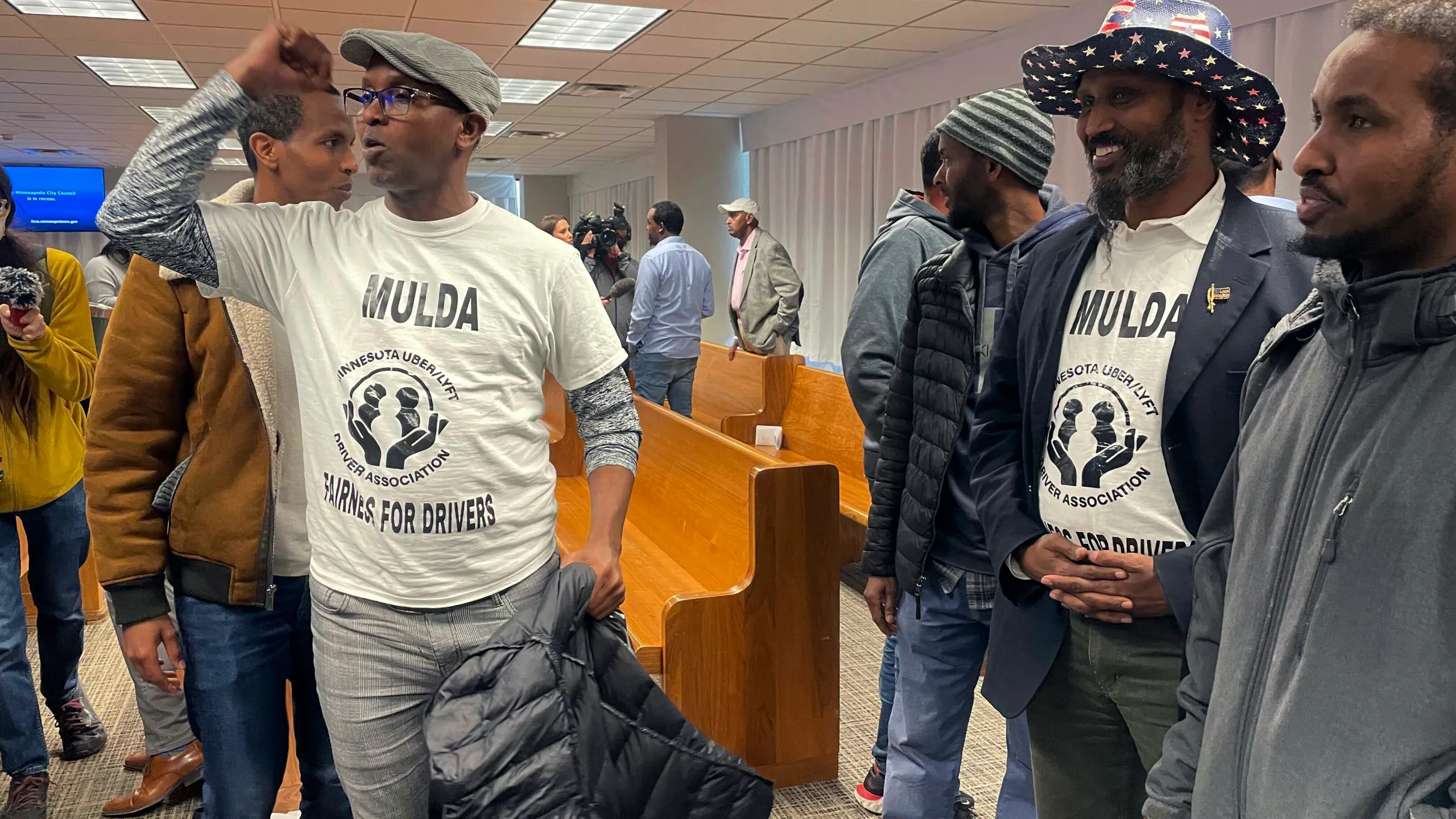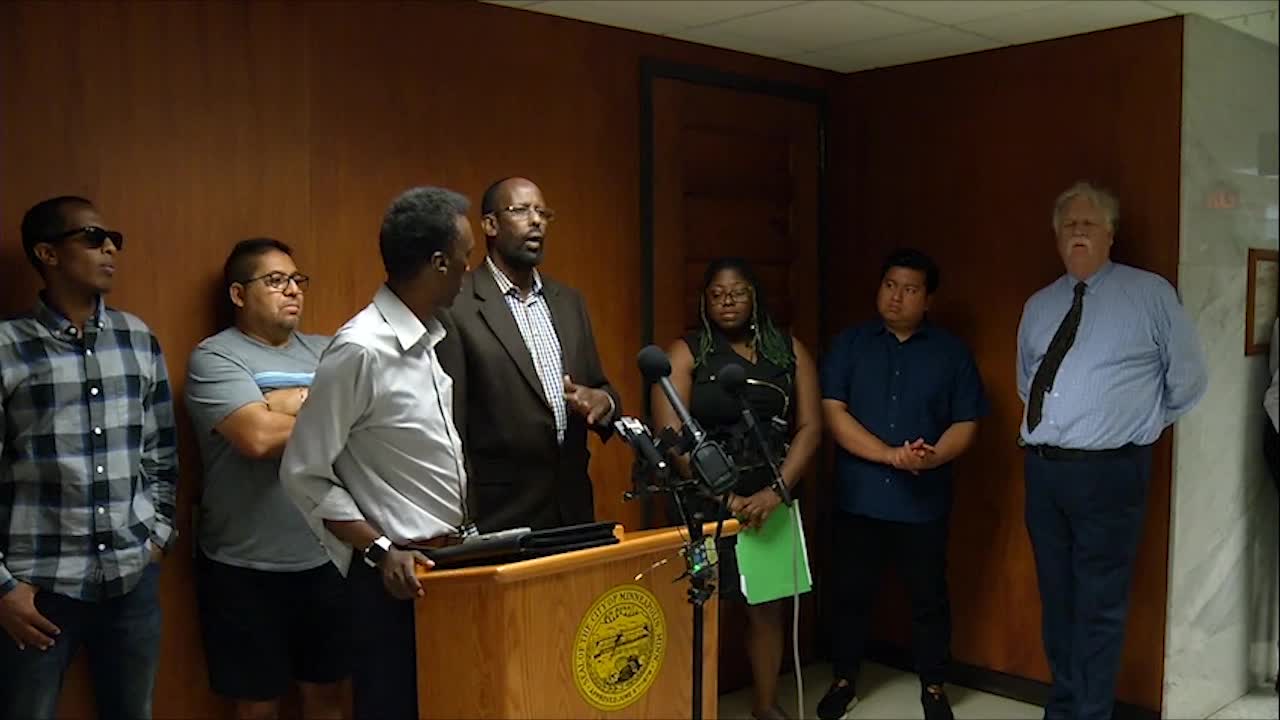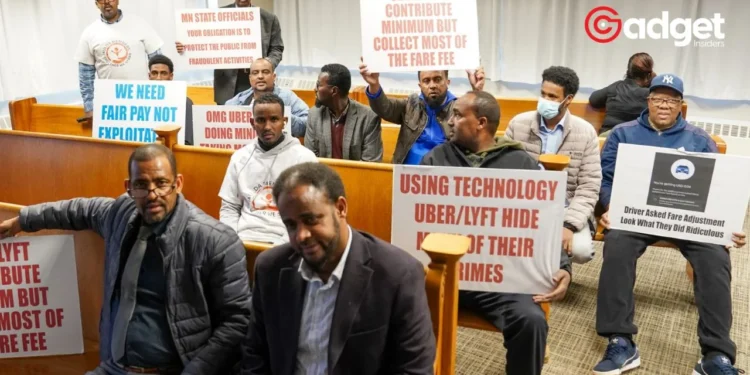In a move that has sent shockwaves through the Twin Cities, rideshare behemoths Uber and Lyft have declared their intention to pull out of Minneapolis by May 1. This decision, rooted in a heated debate over driver compensation, marks a pivotal moment in the ongoing saga of rideshare operations and labor rights within the city.

Uber And Lyft: The Heart of the Controversy
At the core of this development is the Minneapolis City Council’s bold step to ensure rideshare drivers earn a livable wage.
Bypassing an ordinance, which overcame Mayor Jacob Frey’s veto with a decisive 10-3 majority, the council set minimum wage standards for drivers at $1.40 per mile, $0.51 per minute, or a flat rate of $5 per ride, in addition to tips.
This legislation aimed to elevate driver earnings to be more in line with the city’s minimum wage of $15.57 per hour, a gesture towards economic fairness in the gig economy.
Uber and Lyft have been vocal in their opposition, describing the ordinance as “deeply flawed” and a threat to their operational sustainability. They cite a Minnesota study to argue that drivers can achieve the minimum wage benchmark at slightly lower rates, while also covering necessary expenses such as health insurance and retirement savings.
Uber & Lyft Will Be Shutting Down Operations in Minneapolis-St. Paul on May 1st https://t.co/gODt6QOfWs pic.twitter.com/CxDQjsn20g
— Barstool Sports (@barstoolsports) March 19, 2024
The Ripple Effect on Minneapolis
The impending exit of Uber and Lyft from Minneapolis has ignited a firestorm of criticism from both city officials and driver advocates. Mayor Frey, although in favor of a minimum wage for drivers, has raised concerns about the fallout of such a decision, including job losses and the potential impact on the city’s broader transportation ecosystem.
The void left by these rideshare giants threatens to disrupt access to reliable transportation, especially for vulnerable populations, including individuals with disabilities and those without access to personal vehicles.
In an intriguing turn of events, emerging rideshare platforms like Empower and Wridz are poised to step into the breach. These companies offer a novel model that could redefine the rideshare landscape by allowing drivers to pay a monthly subscription fee and keep all their fares, promising a new era of driver autonomy and potentially reshaping the dynamics of the gig economy in Minneapolis.
A Broader Context
The standoff in Minneapolis reflects a larger national dialogue about the rights and compensation of gig workers. As drivers across the country call for fair wages and benefits, cities and states are grappling with how to regulate the rapidly evolving gig economy.
The resistance from rideshare companies highlights the tension between innovation and the need for regulatory frameworks that ensure worker welfare.

Looking Ahead
As Uber and Lyft prepare to cease operations in Minneapolis, the city finds itself at a crossroads. The departure of these rideshare giants not only underscores the critical need to address labor issues within the gig economy but also challenges the city to rethink its approach to transportation and worker rights.
The situation calls for creative, collaborative solutions that balance the needs of drivers, companies, and the community, ensuring that the future of ridesharing in Minneapolis is equitable, sustainable, and inclusive.









